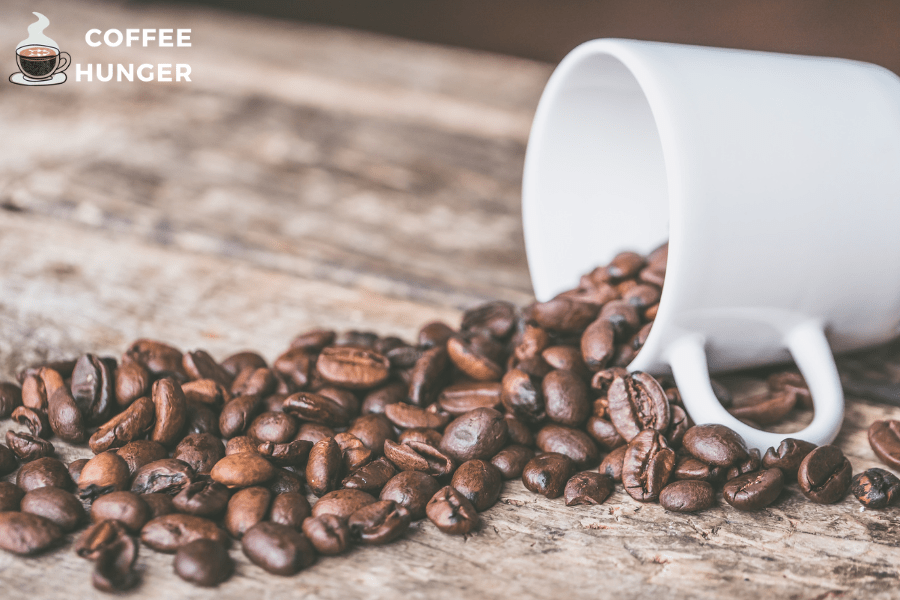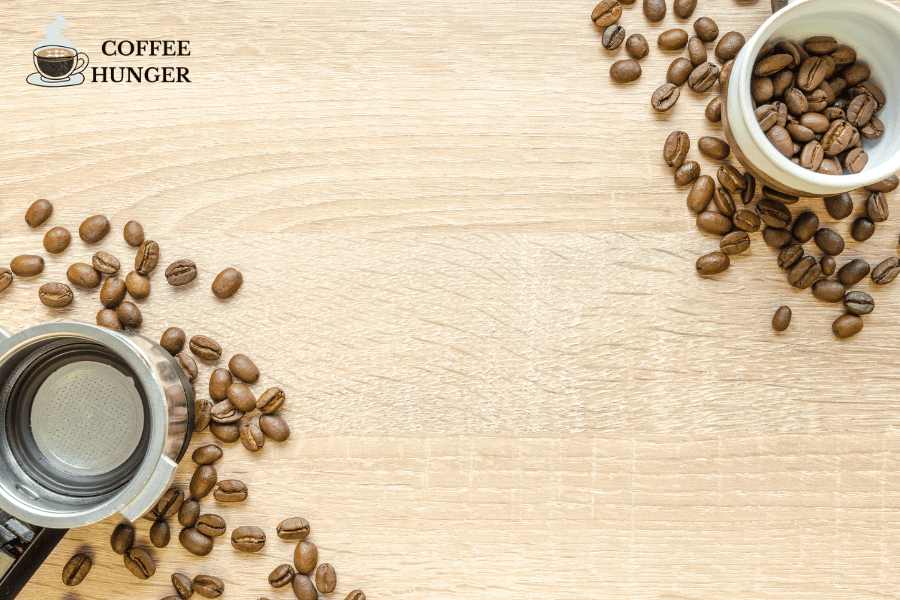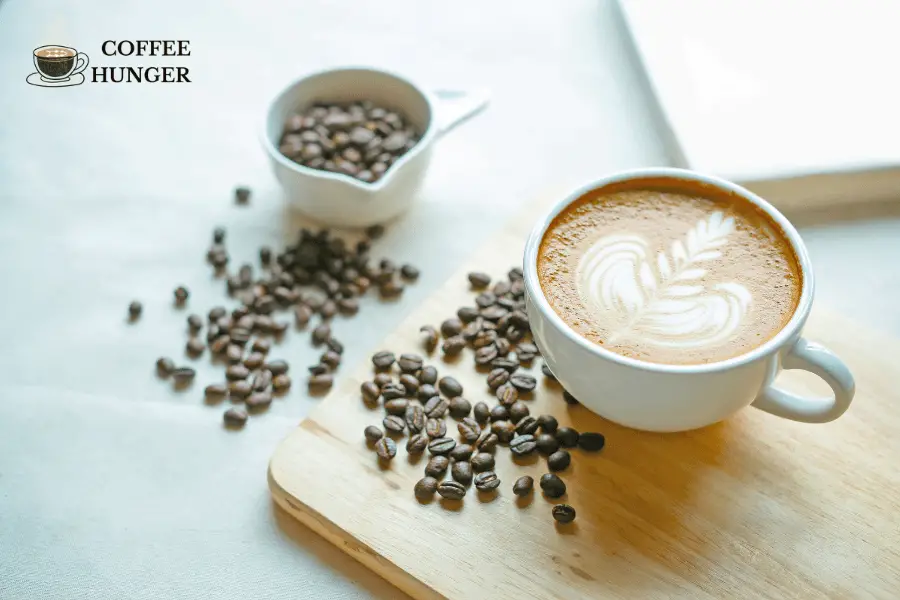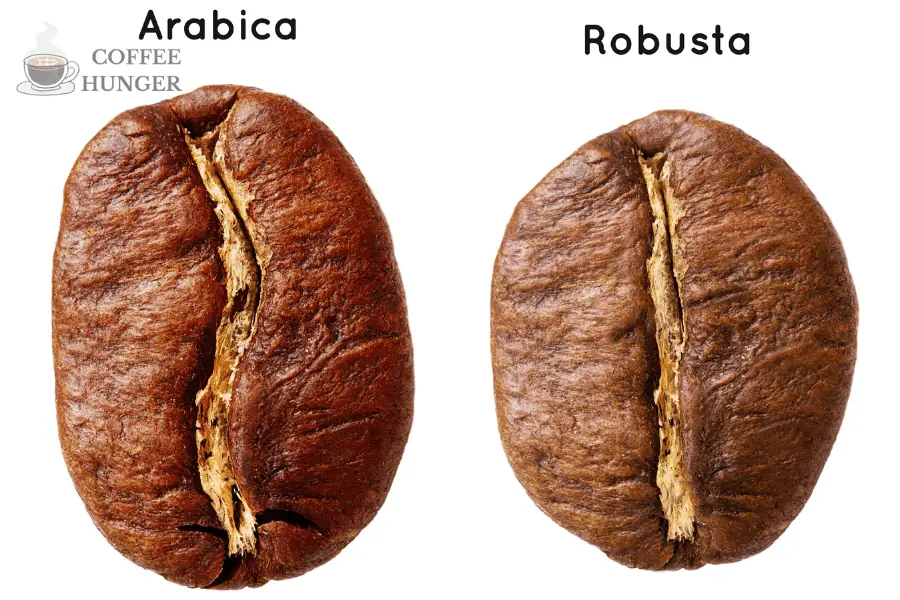Coffee beans are more than just a morning pick-me-up but can you eat coffee beans? They’re packed with antioxidants and other nutrients that can promote good health. Coffee beans are a good source of antioxidants. Antioxidants help protect your cells from damage and can reduce your risk of chronic diseases, such as cancer. Coffee also contains other nutrients, including magnesium, potassium, and niacin.
What are Coffee Beans and Can you eat coffee beans?
Coffee beans are a type of seed that is used as a spice and flavoring agent in food. It’s the dried, roasted, and brewed seeds from the Coffea plant. Coffee beans are often ground to make coffee, either on their own or with other ingredients such as cocoa or sugar but the question is Can you eat coffee beans?
Eating coffee beans may offer more health benefits than drinking coffee. This is because the brewing process removes many of the beneficial compounds found in coffee beans. However, more research is needed to confirm the potential health benefits of eating coffee beans.
It is said that the first person to eat coffee was a goatherd named Kaldi. According to legend, Kaldi discovered coffee after he noticed that his goats became more energetic after eating berries from a certain tree.
Kaldi shared his discovery with the local monastery, and the monks began to brew coffee and drink it to stay awake during their long hours of prayer.
Coffee drinking quickly spread throughout the Arab world, and from there it spread to Europe and the rest of the world.
Today, coffee is one of the most popular beverages in the world, and millions of people drink it every day.
Coffee has many health benefits, including improved mental alertness, decreased risk of diabetes, and reduced risk of heart disease.
However, coffee also has some risks, such as an increased risk of anxiety and insomnia.
If you want to enjoy the benefits of coffee without any of the risks, try decaffeinated coffee or coffee with added antioxidants.
How many Coffee beans can you eat?
Can you eat coffee beans? In short, yes. Coffee beans are safe to eat. However, a few things to keep in mind when consuming them.
Coffee beans are actually the seeds of coffee cherries. They’re usually roasted before being sold to consumers.
Raw, unroasted coffee beans can contain a compound called chlorogenic acid, which can be toxic in high amounts. Roasting the beans reduces the chlorogenic acid content and makes them safe to eat.
It’s also important to note that coffee beans are tough and can you eat coffee beans as they can be difficult to digest. If you do choose to eat them, it’s best to chew them thoroughly before swallowing. You may also want to consider soaking them in water overnight to soften them up before consumption.
How To Eat The Coffee Bean?
Chew on a coffee bean-
The easiest way to eat a coffee bean is to simply pop one in your mouth and chew on it. You can also try crushing the beans up into a powder and adding it to smoothies or other food items.
Make coffee bean tea-
Another way to consume coffee beans is to make tea out of them. Simply steep the beans in hot water for a few minutes and then strain them out. You can add sweetener or milk if you like.
Add coffee beans to baked goods-
If you want to get a little creative, you can add coffee beans to baked goods. This will give the treats a unique flavor and caffeine boost. Just be sure to grind the beans up well so they don’t end up being too chewy.
Eating coffee beans is a great way to get an extra boost of energy. If you’re looking for something different than just drinking coffee, give these methods a try!
Can you eat coffee beans? Is eating coffee beans bad for you
Coffee beans do contain nutrients and antioxidants. One cup of coffee contains vitamins B2, B3, and B5, as well as magnesium, potassium, and manganese. Coffee also contains antioxidants which can help protect your cells from damage.
However, the caffeine in coffee beans can also be harmful then, how do know if can you eat coffee beans or not? Caffeine can increase your heart rate and make you feel anxious. Too much caffeine can also lead to insomnia, headaches, and stomach problems.
Drinking coffee in moderation has been linked with lower rates of death from heart disease, stroke, and diabetes. Coffee drinkers also tend to have a lower risk of Parkinson’s disease and Alzheimer’s disease. So go ahead and enjoy that cup of joe! Just be sure to limit yourself to no more than 400 milligrams of caffeine per day (about four cups of coffee).
There is some debate over whether can you eat coffee beans or not or whether it is healthy or not. Some people believe that coffee beans are packed with nutrients and antioxidants, while others believe that the caffeine in coffee beans is harmful.
8 Benefits of Coffee beans
Coffee beans are not only a delicious snack, but they also offer a number of health benefits. Coffee beans are a good source of antioxidants, which can help to protect your cells from damage. They also contain caffeine, which can boost your energy levels and improve your mental alertness.
Coffee beans also contain vitamins and minerals such as potassium and magnesium, which are essential for good health. So if you are still thinking about whether Can you eat coffee beans? Then yes you can!
Also Read: How to Make Latte and How Does it Taste?
Eating coffee beans can help you to stay hydrated, as they contain water. They are also low in calories and fat, making them a healthy snack option. Coffee beans can help to boost your metabolism and may even help to burn fat. All of these benefits make coffee beans a great snack choice. You can also use coffee beans to flavor other foods, such as soups or salads.
Here are 8 reasons to add coffee beans to your diet:
1. Prevents free radicals:
Coffee is more than just a delicious morning beverage. It also contains high levels of antioxidants, which can help protect your body from free radicals. Free radicals are unstable molecules that can damage cells and lead to inflammation.
Antioxidants help neutralize free radicals and prevent them from causing harm. Research has shown that coffee consumption is associated with lower rates of several chronic diseases, including heart disease, cancer, and type 2 diabetes. This may be due to the protective effects of antioxidants in coffee.
2. Promotes weight loss:
When it comes to weight loss, every little bit helps. And that includes coffee. Coffee beans are packed with antioxidants and other compounds that can improve your health. One study showed that coffee drinkers had a lower risk of death than non-coffee drinkers. Another study showed that coffee can help burn fat and boost metabolism.
So, if you’re trying to lose weight, adding coffee to your diet can be a helpful way to give your efforts a boost. Just be sure to limit yourself to one or two cups per day, and don’t load up on sugar and cream. A cup of black coffee is a calorie-free way to start your day or fuel up before a workout.
3. Helps to cure Cancer:
Coffee has been shown to help protect against cancer, including liver, colon, skin, and breast cancer. The antioxidants in coffee help to neutralize free radicals, which can damage cells and lead to cancer. Coffee also contains caffeine, which has been shown to inhibit the growth of tumors.
4. Improves concentration:
Coffee is a popular beverage for many people because it provides a boost of energy. The caffeine in coffee can help to improve concentration and focus. When you drink coffee, the caffeine blocks adenosine receptors in the brain. This increases the release of dopamine and norepinephrine, which can improve cognitive function.
So, if you’re looking for a way to improve your focus and concentration, reach for a cup of coffee. Just be sure to limit yourself to moderate amounts of caffeine, as too much can lead to restlessness and anxiety.
Also Read: Iced Americano Recipe – The Best Way to Make Iced Coffee
5. Lower the risk of type 2 Diabetes:
A new study has found that coffee beans may help to lower the risk of type 2 diabetes. The study, which was conducted by the Harvard School of Public Health, found that those who ate one or two servings of coffee beans per day had a lower risk of developing the disease than those who did not eat any coffee beans.
Studies have shown that people who consume moderate amounts of coffee (3-4 cups per day) have a lower risk of developing this condition.
The study’s lead author, Dr. Iris Shai, said that the findings “support a possible protective effect of coffee against type 2 diabetes.” She added that the results “should be interpreted cautiously,” and noted that more research is needed to confirm the link between coffee and diabetes risk.
If you’re interested in lowering your risk of type 2 diabetes, adding coffee beans to your diet may be a good place to start.
6. Improve brain function:
Coffee can also improve brain function. The caffeine in coffee beans can help improve memory, reaction time, and vigilance.
A recent study found that coffee beans can help improve cognitive function and memory. The study participants were given a task to complete which required them to remember a sequence of numbers. They were then asked to repeat the numbers back in reverse order. The participants who had eaten coffee beans performed better on the task than those who had not.
So, if you’re looking for a way to boost your brain power, consider adding coffee beans to your diet. You may be surprised at how much difference they can make.
7. Lowers risks of depression:
A new study has found that coffee may help lower the risk of depression. The study, which was conducted by researchers at the University of Harvard, looked at the dietary habits of more than 50,000 women over a period of eight years.
The findings showed that those who drank four or more cups of coffee a day were 20% less likely to suffer from depression than those who didn’t drink any coffee.
The study also found that it didn’t matter whether the coffee was caffeinated or decaffeinated – both had the same effect. This is good news for coffee lovers, as previous studies have suggested that caffeine may actually worsen symptoms of anxiety and depression.
So why does coffee have this protective effect against depression? The researchers believe it may be due to the fact that coffee is rich in antioxidants, which have been shown to boost mental health.
8. Supports heart health:
Coffee has been shown to support heart health in a number of ways. First, coffee consumption has been linked with a lower risk of developing cardiovascular disease.
Coffee drinkers have a lower risk of developing coronary heart disease, and coffee may also protect against stroke. Additionally, coffee consumption has been associated with a lower risk of death from cardiovascular disease.
These beneficial effects of coffee may be due to the fact that coffee contains antioxidants and other bioactive compounds that can help to protect the heart. For example, coffee consumption has been linked with higher levels of HDL (good) cholesterol and a lower risk of atherosclerosis.
In addition, coffee drinkers have a lower risk of type 2 diabetes, which is another major risk factor for heart disease. So, if you’re looking to support your heart health, drinking coffee may be a good idea.
Also Read: Does The Starbucks Pink Drink Actually Have Caffeine?
How are coffee beans made? And Can you eat coffee beans
In our society, coffee has taken on many different meanings. For some, it’s a way to wake up in the morning, for others it’s a way to relax and unwind. No matter what your reasons for drinking coffee are, there’s no doubt that it’s become a staple in our society.
But how are coffee beans made? It all starts with the coffee plant. The coffee plant is a shrub that grows best in tropical climates. Once the coffee plant blooms, small white flowers appear. These flowers will eventually turn into the coffee berries that we know and love.
Once the berries are ripe, they’re picked by hand and then placed in water. This helps to remove any unwanted debris from the berries. After they’ve been washed, the berries are then placed on raised beds where they’ll be sun-dried for about two weeks.
Which coffee beans are the best?
There are many factors to consider when choosing the best coffee beans for you. The first is what kind of coffee bean you want. There are three main types of coffee beans: Arabica, Robusta, and Liberica. The second factor is where you want your beans to come from.
There are many different countries that produce coffee beans, each with its own unique flavor profile. The third factor to consider is how you will be brewing your coffee. Different brewing methods require different grinds, so it is important to know how you will be making your coffee before choosing your beans.
Also read: What’s The Difference Between A Latte And A Macchiato?
There are three main types of coffee beans:
1. Arabica:
Arabica beans are the most popular type of coffee bean. They have grown in Central and South America as well as Africa and Asia. The beans are small and have a mellow flavor.
2. Robusta:
Robusta beans are less popular than Arabica beans but they are still widely used. They are grown in Indonesia, Vietnam, and India. The beans have a strong flavor and contain more caffeine than Arabica beans.
3. Liberica
Liberica beans are the least popular type of coffee bean. They are grown in West Africa and have a unique flavor that is often described as fruity or floral.
If you are looking for a versatile coffee bean that can be used for a variety of different brewing methods, then Arabica is the best choice for you. Arabica beans are grown in many different countries, so there is a wide range of flavors to choose from.
Drawbacks of Coffee beans
Though coffee beans are safe to eat, there are a few drawbacks to consider before munching on a handful. First, coffee beans contain caffeine. Can you eat coffee beans as eating a lot of caffeine can lead to restlessness, anxiety, and irritability? If you have trouble sleeping, you may want to avoid eating coffee beans late in the day.
Secondly, coffee beans are acidic and can cause heartburn or upset stomachs in some people. If you have digestive issues, you may want to steer clear of coffee beans altogether. Finally, some people simply don’t like the taste of coffee beans. If you’re not a fan of coffee, chances are you won’t enjoy eating the beans either.
Conclusion
So, can you eat coffee beans? The answer is yes! Coffee beans are actually seeds that can be used to grow coffee plants. However, the coffee plant produces a fruit that is not safe for human consumption. The coffee bean itself is safe to eat, and it has a variety of health benefits.
Coffee beans are a good source of antioxidants, which can help to protect your body from damage. They are also a good source of fiber, which can help to improve your digestive health. Additionally, coffee beans contain caffeine, which can help to increase your energy levels.
If you are looking for a healthy snack that will give you a boost of energy, try eating some coffee beans. Just remember to moderate your intake and avoid eating too many in one sitting, as this can lead to unpleasant side effects like jitters or anxiety.
FAQ
Q 1) Are coffee beans safe for pregnant women?
Ans: It’s safe to eat coffee beans while pregnant. Coffee beans are a type of seed which is used as a spice and flavouring agent in food.
Q 2) How do you grind coffee beans?
Ans: You can grind the coffee beans by using a manual grinder or an electric one. The most important thing is that if you want to keep the flavor of the beans, you should avoid aerating them because air can cause oxidation and reduce their quality.
Q 3) Will I get caffeine high if I eat coffee beans?
Ans: The answer is yes. If a human consumes by mouth an emulsion of food-grade charcoal and raw coffee beans, there’s a good chance you will get a caffeine high because these two components are activated by stomach acids, which can activate the compound caffeine.
Q 4) Which coffee beans are edible?
Ans: There’s only one type of Coffea plant, so they’re all edible. Whole coffee beans are not healthy to eat; you should always take them out and grind them up first. This way, the pulp in the bean gets a chance to mix with water and hot water before it goes through the process of roasting and being turned into a drinkable product.
Q 5) Where can I buy coffee beans?
Ans: Coffee beans can often be found in grocery stores, but you can buy them on the internet as well. We recommend purchasing your coffee beans from a store that specializes in coffee beans because they often have more knowledge about how to brew and flavor your coffee.
Q 6) Does eating coffee beans help you lose weight?
Ans: There is no evidence that coffee beans will help you lose weight. They are merely spices, and food which contains lots of spices is not designed to help you lose weight
Q 7) How to Properly Store Coffee Beans?
Ans: You can store your coffee beans in an airtight container, either in the fridge or someplace away from heat and light. One of the benefits of storing coffee beans in the fridge is that it will maintain freshness and flavour better.
Also Read:
Why don’t Mormons drink coffee?
Can You Use Heavy Whipping Cream in Coffee?
How to Get Rid of Dizziness After Drinking Coffee



